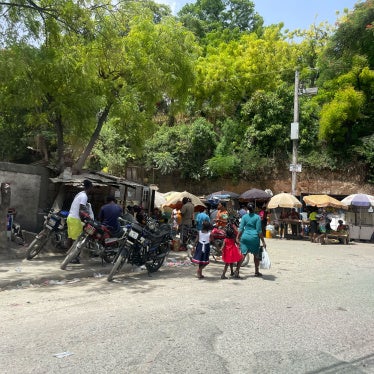Lilibeth Masamloc came from a poor family in the Philippines countryside, and was raised alongside 12 brothers and sisters. "Money was always tight," she has said. "We never had enough. My parents could barely scrape by to send us to school." When she was 13, a cousin convinced her to go to Davao City as a domestic worker.
Lilibeth hoped that in the city, she would be able to pursue her education. But over the next few years, she had four employers, each worse than the last. The first paid her only US$18 a month, but often withheld her wages for 'mistakes' she supposedly made. When that employer moved, she passed Lilibeth off to her siblings, leaving Lilibeth responsible for taking care of three households for the same salary.
"I cleaned three houses, cooked for two families, washed all their clothes and did all their errands," she said. Another employer verbally abused her and forced her to work so many hours that she often got only 3 hours of sleep a night. Despite the punishing hours, Lilibeth managed to attend school on Sundays, her day off, paying for tuition out of her own salary. With the help of a guidance counselor at school, she made contact with groups working on behalf of domestic workers. By the age of 21, she had become a national advocate for domestic workers' rights.
Today, approximately 15 million children work as domestic workers, nearly 30 per cent of the world's 50 to 100 million domestic workers. They often work 12 or more hours a day, seven days a week, cooking, cleaning, washing clothes, and caring for their employer's children. They often receive little pay, if they are paid at all. Their isolation in private homes leaves them at particular risk of exploitation and violence, including sexual abuse. Evidence shows that they are even less likely than other working children to attend school.
Yesterday 10 leading international organisations joined forces to call on ministers of labour around the globe to protect these vulnerable children by ratifying the International Labour Organisation Domestic Workers Convention. The Domestic Workers Convention, adopted in 2011, protects children and adults alike. It requires governments to take steps to keep young girls out of domestic work, and to ensure that those old enough to work legally enjoy the same rights as other workers, including weekly days off, limits to hours of work, minimum wage coverage, and overtime compensation. Governments that ratify the convention also pledge to ensure that domestic work does not deprive children of education.
This year, the ILO is devoting the World Day against Child Labour on June 12 to child domestic labour. The organisations making the appeal – including human rights groups like Amnesty International and development organisations like Plan International and World Vision – urged governments to use the World Day to announce or pledge their ratification of the convention.
In large part because of advocacy by Lilibeth and other domestic workers, the Philippines was one of the first governments to ratify the Domestic Workers Convention and recently adopted a comprehensive national law for domestic workers. So far, only three other countries – Uruguay, Mauritius, and Italy – have ratified the convention, although at least 48 have submitted the convention to their parliaments or other bodies for consideration.
In 2011, Lilibeth Masamloc attended the final negotiations of the Domestic Worker Convention in Geneva, and addressed delegates. She spoke specifically about child domestic workers, saying: "We have been ignored and lived in the margins of society for so long. Now is the time to protect us." By ratifying the convention and putting it into practice, governments have that chance.
Jo Becker is the children's rights advocacy director at Human Rights Watch, and author of Campaigning for Justice: Human Rights Advocacy in Practice









